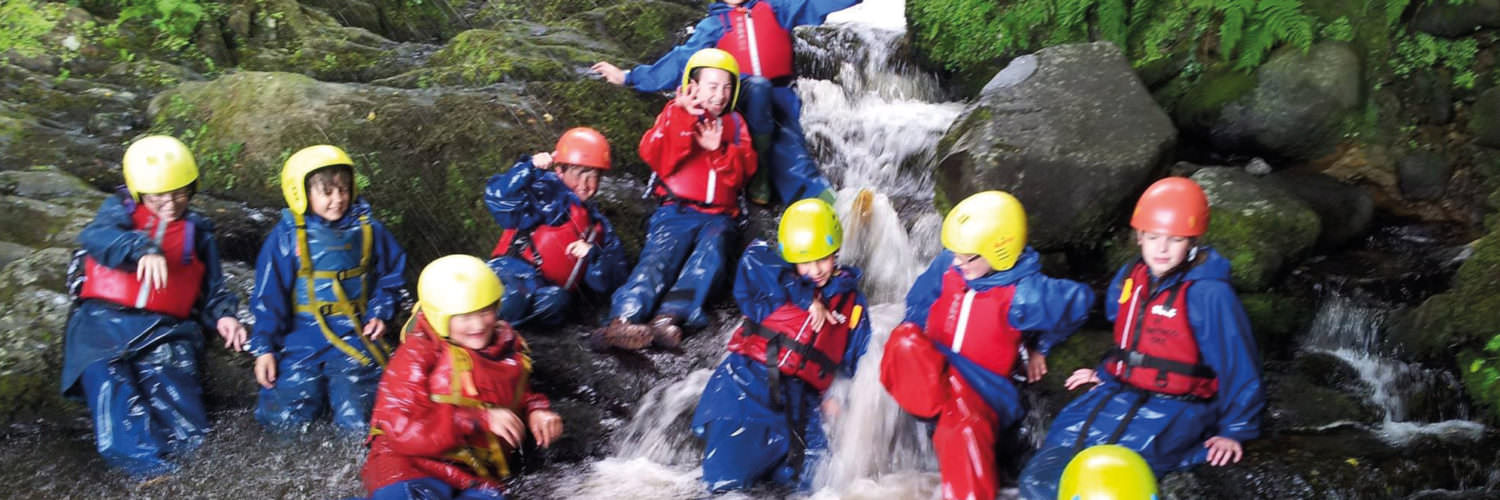
Assuring Quality and Safety in the Activity Industry
The British Activity Providers Association was formed by a number of responsible activity centre operators in 1986, with the express intent of establishing operating guidelines for an ‘industry’ that then otherwise had no specific controlling regulations.
Following various meetings, the Association was started and the inspection programme was developed and launched in the late 1980s before the launch of the statutory Adventure Activities Licensing Service which was established after the Lyme Bay Tragedy in 1994, when sadly, four teenagers were drowned. This tragedy highlighted the need for some inspection and accreditation system, which BAPA had already established for its members centres some years previously. Over the last 30 years, members, BAPA Directors and staff have developed a Code of Practice, Activity Guidelines and an Inspection Scheme.
The BAPA Code of Practice lays down standards for:
• Accommodation
• Activity Equipment
• Activity guidelines
• Customer Care
• Environmental responsibility
• Fire Precautions
• First Aid
• Health and Safety
• Insurance
• Learning Support
• Recruitment, staffing and management
• Staff induction / training / assessment
• Transport
Members are required to carry out risk assessment of their centre / activities, in keeping with the Management of Health and Safety at Work Regulations 1992. The Code of Practice gives guidance on how to carry out these assessments, leading to local activity operating procedures that cover the risks identified. More recently, members have begun to explore the concept of including risk-benefit statements in their risk management processes and linking these to the activity operating procedures.
BAPA inspections are carried out against local operating procedures but minimum standards are also set for the most common activities and members are expected to match or exceed these. They are consistent with NGB guidelines where these are relevant to the activity at the level undertaken. The results of the latest inspection must be held on file at each centres and be available for scrutiny by potential customers on request.
BAPA offers members three different types of accreditation, depending on their operation / market / requirements.
There are three main types of organisation in membership of BAPA and the Association provides a route to accreditation for quality provision in all three:

Daycamps
Members offering non-residential daycamps in an activity setting can submit to a BAPA inspection of their safety management systems and 25% of their sites, to check that they are complying with the standards laid down in the Code of Practice. Providers who meet the required standards will receive BAPA DAYCAMP Accreditation.

Adventuremark
Centres providing residential accommodation and / or a programme of adventurous activities (outside the scope of Adventure Activities Licensing Regulations) will be inspected every other year, with a paper self-assessment checked by our inspectors in the interim. BAPA has approval to recommend members for the industry Adventuremark award on successful completion of this BAPA health and safety inspection.
Providers whose activities fall within the scope of the Adventure Activities Licensing Regulations must of course apply for licences as required by legislation. No separate BAPA inspection will be required as long as the AALA Licence remains in force, but a paper self-assessment must be checked by BAPA inspectors in the interim year of a 2 year licence.

LOtC Quality Badge
Centres working with school and statutory youth groups may also wish to be assessed against the Learning Outside the Classroom Quality Criteria. BAPA inspectors are able to carry out additional checks during their inspection visits to ensure that members are complying with the LOtC Quality Indicators that confirm the level of provision and learning support required. AALA licensed centres can book supplementary LOtC inspections with BAHA to check compliance with the same criteria. Members can then be recommended for the LOtC Quality Badge.
In summary BAPA membership is an indication to schools, parents and other customers that the centre / operator is taking its responsibilities seriously and should have a safe operation, providing value for money and an enjoyable and beneficial experience.




